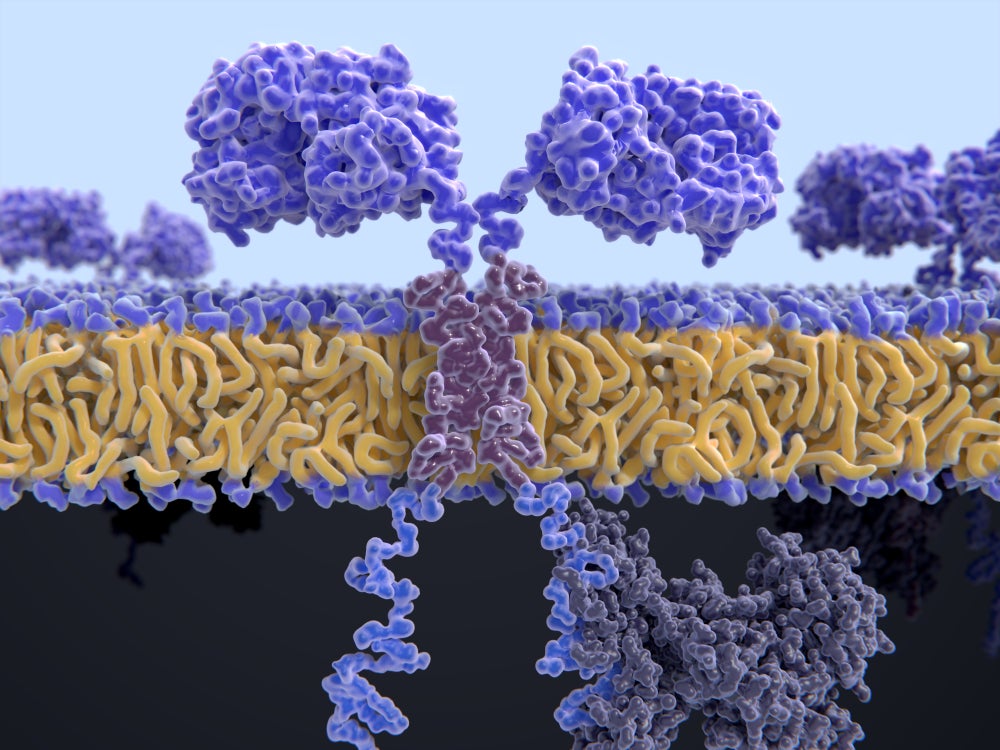Chimeric antigen receptor (CAR) T cell therapies have made remarkable strides in treating high-risk B-cell malignancies since the first CAR-T, Novartis’s Kymriah (tisagenlecleucel), was approved in 2017. As of March 2025, seven CAR-T therapies have received US Food and Drug Administration (FDA) approvals across several indications, but there have been significant barriers to the uptake and commercialisation of these novel assets. During the 11th Annual Immuno-Oncology 360 (IO360) Summit, held from 24 to 26 March 2025 in Boston, Massachusetts, much of the focus was on ongoing research addressing existing challenges and ways to extend the efficacy, safety and accessibility of CAR-T therapies across a broader range of diseases. Several presentations addressed one of the main limitations of CAR-T therapies: their complex and lengthy manufacturing process and the resulting high treatment costs, limiting patient access and leading to a loss of potency for the resulting product due to excessive manipulation ex vivo.
Increase patient access and reduce production time and cost with allogeneic off-the-shelf CAR-T cells
Intellia Therapeutics presented its allogeneic cell platform for oncology and autoimmune disorders based on clustered, regularly interspaced short palindromic repeats (CRISPR)-Cas 9 gene editing. Intellia Therapeutics’ ex vivo editing platform combines the lipid nanoparticle (LNP) delivery of genome editing components combined with multiplex knockout (KO) editing. Precise CRISPR-Cas 9 editing provides a scaleable engineering approach with minimal genotoxicity, generating early memory T-cells. The LNP delivery of editing components provides an advantage over electroporation or retroviral transduction, which could lead to insertional mutagenesis or chromosomal aberrations.
The use of allogeneic cell therapies is limited by the potential for the recipient to develop graft-versus-host disease (GVHD). GVHD is caused by the T cell receptor (TCR) from allogeneic T cells recognising and destroying recipient (host) cells, and is addressed by the KO of endogenous allogeneic TCRs. The rejection of allogeneic T cells via host T cells is prevented by the selective KO of human leukocyte antigen (HLA) class I/II. A haematopoietic transplantation donor match requires a 10/10 HLA allele match (HLA-A, – B, -C, -DR and -DQ). Intellia Therapeutics’ multiplex gene editing leads to the KO of all HLA alleles except HLA-C (homozygous donor), leading to 90% patient coverage with only seven HLA-C types. HLA-C matched cells are protected from T and natural killer cell lysis in vitro and in vivo. The advanced cell engineering platform enables multiplex editing with minimal double-stranded DNA breaks, limiting the potential for genotoxicity and improving cell expansion, viability and yield.
While allogeneic cell therapies offer several potential advantages over autologous products, Intellia Therapeutics’ Allo Universal CAR-T (AVC202) is in the preclinical stage of development for multiple myeloma and inflammatory disease.
In vivo CAR T-cell generation to overcome manufacturing and accessibility issues
All marketed CAR T-cell therapies require ex vivo manipulation of a patient’s T-cells – a time-consuming and expensive process. The complexity of CAR-T production and the management of serious adverse side effects require specialised treatment centres, leading to limited patient access. Generating CAR-T cells in vivo by delivering a CAR payload to a patient’s T cells in vivo could simplify this process by directing the patient’s immune system to produce CAR T-cells internally, reducing costs and expanding accessibility.
Umoja Biopharma presented its in vivo CAR-T cell therapies for oncology and autoimmune disease. The potential advantages of its platform are direct in vivo delivery of CAR payloads to T cells without lymphodepletion chemotherapy, followed by CAR-T expansion in the patient. Umoja Biopharma’s lead asset, UBVV-111, is a dual payload lentivirus carrying a CD19 CAR and a rapamycin-activated cytokine receptor (RACR). The RACR synthetic cytokine system supports lymphodepletion-free CAR-T engraftment and expansion, and maintains non-engineered immune cells in quiescence. UBVV-111 is under development for blood cancer and autoimmune diseases in partnership with AbbVie.

US Tariffs are shifting - will you react or anticipate?
Don’t let policy changes catch you off guard. Stay proactive with real-time data and expert analysis.
By GlobalDataIn July 2024, the FDA accepted investigational new drug (IND) status for UB-VV111, making it the first and only US IND for an in vivo CAR-T therapy. UBVV-111 is in a Phase I clinical trial (INVICTA-1) in the US for chronic lymphocytic leukaemia and diffuse large B-cell lymphoma (DLBCL). Umoja Biopharma’s pipeline also includes UBVV-400, a CD22 CAR, in a global Phase I trial for DLBCL and lupus erythematosus, as well as seven preclinical assets targeting heme malignancies, solid tumours and autoimmune disease.
Optimising CAR-T generation and persistence by using implantable scaffolds
Dr. Yevgeny Brudno (University of North Carolina and Persistence Therapeutics) presented preclinical data on generating CAR-T cells in a multifunctional alginate scaffold to T cell engineering and release (MASTER). Alginate is a polysaccharide of natural origin with excellent biocompatibility, biodegradability and gel-forming ability, making it an attractive choice for tissue engineering. Macroporous alginate scaffolds embedded with interleukin (IL)-2 and activating CD3/CD28 antibodies are used to transduce fresh T cells with lentiviral CAR constructs. CAR-T cells containing scaffolds were then subcutaneously implanted into mice on the same day. MASTER-generated CAR-T cells targeting B7H3 demonstrated superior in vivo efficacy and persistence in orthotopic pancreatic cancer, lung cancer and ovarian cancer mouse models compared to standard-of-care intravenously delivered CAR-T cells. If these preclinical findings with implantable scaffolds were translated into clinic, they could shorten the CAR-T generation lead time from two weeks to one day.





